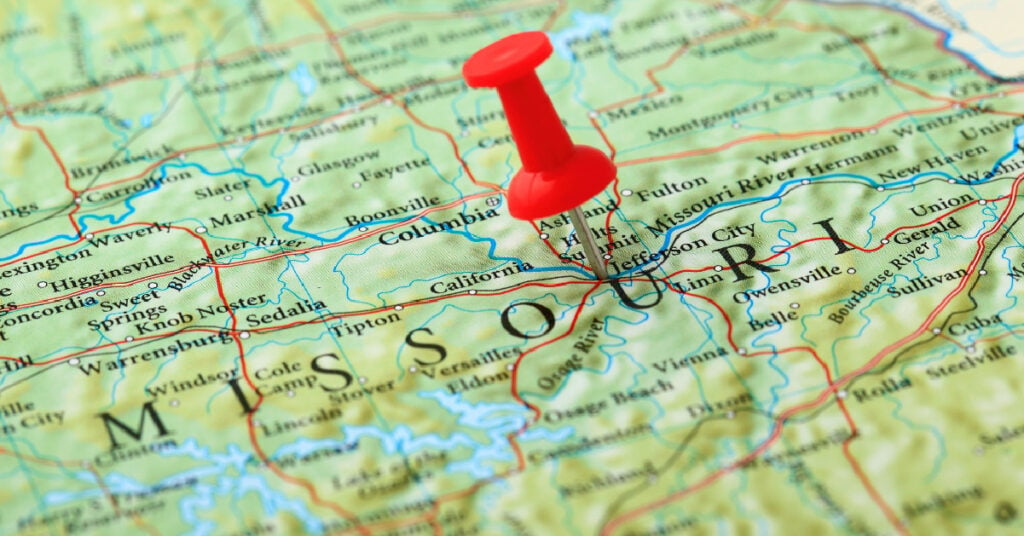Wisconsin’s expansion of a capital gains tax break for high-income households represents a dark spot on this week’s state fiscal news, and the growing threat of COVID-19 is casting an ominous shadow over all of it, but otherwise the picture is pleasantly sunny, featuring small steps forward for sound, progressive tax policy. An initiative to create a graduated income tax in Illinois, for example, got a vote of confidence from a major ratings agency, while a similar effort went public in Michigan and two progressive income tax improvements were debated in Rhode Island. Gas tax updates made encouraging progress in Alaska and Kentucky. And Hawaii leaders continued to work toward important Earned Income Tax Credit (EITC) and minimum wage improvements.
MEG WIEHE, ITEP Deputy Director, @megwiehe
Major State Tax Proposals and Developments
- In MARYLAND, the House Ways and Means Committee held a hearing about a controversial bill that would expand the sales tax to include most professional services and reduce the tax rate from 6 to 5 percent. Legislators also introduced a more modest bill that would narrowly tax “luxury” services, but Monday’s testimonies primarily focused on the more expansive bill. — KAMOLIKA DAS
- WISCONSIN will expand opportunity zone benefits after Gov. Evers signed a bill that will double the state capital gains exclusion to 20 percent and 30 percent for qualified investments made for at least five and seven years, respectively. — MARCO GUZMAN
- The outcome of ILLINOIS’s November referendum on a graduated income tax will have not only huge consequences for the state’s ability to adequately invest in education and other critical public services in coming years and make substantial progress on addressing its structural deficit but also its credit position, according to a recent assessment by the credit ratings agency Fitch Ratings. — LISA CHRISTENSEN GEE
- In addition to its effects on individual lives around the world and the global economy, COVID-19 is beginning to influence state fiscal debates as well. CALIFORNIA is seeking $20 million in disaster funding to aid in its efforts to fight the virus; NEBRASKA revenue forecasters trepidatiously increased their projection after discussing the risks posed by the virus at length; NEW YORK policymakers are watching these developments particularly closely due to their large financial sector; WASHINGTON’s Health Department has requested $100 million for its fight, while a county in the state is purchasing an entire hotel to be able to house people as they recover from the virus and need to remain quarantined; and UTAH Gov. Gary Herbert has cited the threat of the virus as a reason the state should not consider a tax cut this session. More broadly, the Economic Policy Institute writes about how low-wage workers who do not have access to paid sick days or health insurance are most susceptible to the coronavirus. — DYLAN GRUNDMAN
Governors’ Budget Proposals and State of the State Speeches
- Gov. John Bel Edwards of LOUISIANA will give his annual address next week, and governors of MINNESOTA and OHIO are scheduled to address their states later in March.
State Roundup
- ALABAMA Gov. Kay Ivey signed a bill that prohibits cities from enacting new occupational taxes through their city councils. The bill would not impact existing occupational taxes in over twenty Alabama cities, but could impact Montgomery’s newly approved 1 percent tax.
- ALASKA’s Senate voted to raise the state’s gas tax from 8 cents per gallon to 16 cents per gallon, raise the marine fuel tax, and increase registration fees for hybrid electric and plug-in vehicles. The tax increase now moves to the House of Representatives for consideration.
- In HAWAII, a package of proposals aiming to ease the state’s cost of living continues to advance. The bills include an increase to the minimum wage, EITC refundability, and changes to the food tax credit. Another bill, which would implement carbon pricing, also passed the halfway point.
- The KANSAS Senate passed two bills related to property taxes. SB 294 would hinder local governments from raising property tax revenue by establishing new public notice, mailing and hearing requirements. It would also require elected officials to vote on the entire property tax increase in their budgets each year. SB 295 would prevent county appraisers from increasing property valuations because of normal repairs or maintenance.
- Recent bills in KENTUCKY would increase the state’s gas tax to 34.6 cents per gallon (up from 26 cents per gallon), add fees to electric and gasoline-fueled vehicles, and give cities more options for collecting revenue. The House voted to create a tax on vaping products, while increasing taxes on snuff and chewing tobacco; the legislation will now move to the Senate for consideration.
- A MICHIGAN coalition announced a ballot initiative that would require the state to enact a graduated tax system that would reduce the flat, 4.25 percent rate for individuals making $175,000 or less and raise $1.5 billion in revenue.
- Also, MICHIGAN Gov. Whitmer approved a bill that will allow homeowners to enter into agreements to eliminate property tax debt that exceeds 10 percent of a home’s taxable value.
- MISSOURI House lawmakers have given preliminary approval to their bill to reduce the sales tax rate on feminine hygiene products from 4.2 percent to 1.2 percent.
- A bill introduced in the NEW HAMPSHIRE House would allow municipalities to adopt commercial and industrial property tax rates that are different from their residential property rates.
- NEW MEXICO Gov. Lujan Grisham approved bills to support the state’s renewable energy infrastructure, including a bill that reinstates the solar tax credit and a bill that provides tax breaks for the construction of electric transmission lines.
- PENNSYLVANIA lawmakers continue to weigh changes to the state’s school property taxes. In the face of potential reform, lawmakers grapple with the right mix of revenue options to replace resulting lost revenue.
- RHODE ISLAND’s Senate passed a bill that would loosen requirements for the state’s film tax credit. If approved, the state would no longer require that more than half of film and television production be shot in the Ocean State to qualify for tax credits.
- Meanwhile, the RHODE ISLAND General Assembly is considering two plans to raise revenue from taxes on high-income earners. One proposal would add a 3 percent surcharge on income over $475,000. Another plan would increase the top income tax rate from 5.99 percent to 6.99 percent on income over $500,000.
- Legislators in TEXAS are debating a proposed change by the Comptroller’s Office that would shift online sales tax collection from the city in which the sellers are based to the location of the buyer.
- The UTAH Senate approved a bill that would impose a 56 percent tax on the wholesale price of electronic cigarettes in addition to creating new rules on sales of vapor products.
- On Town Meeting Day, local governments across the state of VERMONT cast ballots on a range of local option taxes – among other things.
- A bill moving through the WEST VIRGINIA legislature would require online travel platforms and marketplace facilitators such as Airbnb to collect county and municipal taxes on behalf of short-term rental owners.
- A bill that would create a 5 percent statewide lodging tax in WYOMING is heading to the governor’s desk following a successful concurrence vote in the House. The bill would also reduce the maximum local lodging tax rate to 2 percent.
What We’re Reading
- Nine organizations are partnering to host EconCon 2020, a two-day conference for thought leaders, policy experts, advocates, communications professionals, and organizers who want to build an economy that works for all. Sen. Sherrod Brown and Dr. Tressie McMillan Cottom will be featured speakers, and session descriptions and additional speakers can be found on EconCon2020.org. Financial support may be available for those who have difficulties attending.
- An intriguing proposal from The Hamilton Project suggests a new way to tax inherited wealth: apply regular income and payroll taxes to inheritance income, while exempting a certain amount of such income over an individual’s lifetime, thus ensuring the tax applies only to those receiving very large inheritances and is calculated in a progressive manner.
- Route Fifty reports in depth on some of the issues states are running into when trying to apply sales taxes to services.
- Route Fifty also covers recent research from the Center for American Progress on the growing economic divide between urban and rural areas in the US.
- The Center on Budget and Policy Priorities provides a helpful update on state efforts to tax wealth and the fruits of wealth, particularly via capital gains taxes and estate taxes.
- Chuck Collins from the Institute for Policy Studies writes about the dangers of billionaire influence on democracy.
If you like what you are seeing in the Rundown (or even if you don’t) please send any feedback or tips for future posts to Meg Wiehe at [email protected]. Click here to sign up to receive the Rundown via email.





